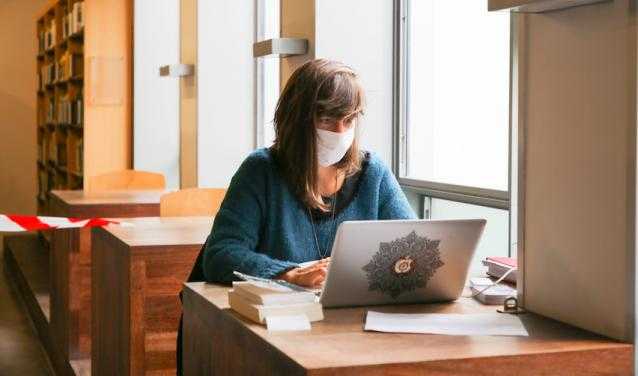Home>Key takeaways from a semester unlike any other

03.07.2020
Key takeaways from a semester unlike any other
The 2019/2020 academic year has come to an end, and our students have experienced a semester unlike any other. What takeaways can we draw from this unprecedented period? How did this hurried switchover go over for students and teachers? The verdict that we are able to draw today shows a successful adjustment for the vast majority and provides useful lessons for the upcoming semester.
On 16 March, the start of the lockdown in France, Sciences Po closed its doors to teachers and students for the first time in its history. On 23 March, the semester was resumed fully online for five equally historic weeks, closing with a session of online exams and a Grand écrit (written exam) instead of the Grand oral (oral exam). Altogether, there were nearly 70,000 online classes and meetings, over 571,000 hours of exchanges and nearly 7,000 assignments "turned in" in the digital space, which replaced traditional classrooms.
What conclusions can be drawn from this unprecedented experience? The survey carried out at the end of April by the Institute of Skills and Innovation* shows that the system put in place has brought overall satisfaction, with 9 teachers out of 10 and 3 students out of 4 who report being “somewhat satisfied” or “very satisfied”.
Room for innovation for teachers
The vast majority of teachers report being satisfied with students’ attention, attendance and level of interaction. For the most part, they adapted their classes, both on the content level - syllabus and assessment methods - and on the practical teaching level, by shortening the sessions, and by offering more detailed instructions and alternative resources. Other than Zoom, which was available to everyone, teachers report frequently using... email, but also shared folders online, as well as the Moodle platform. “Teachers did not just lecture: they took advantage of this phase to test different innovations”, observes Jean-Pierre Berthet.
As for students, 86% spent 4 hours a day or less in online classes, and ¾ of them declared being quite satisfied or very satisfied with the experience. The remote classes system was overall well-received, even though some report certain learning difficulties, mainly citing difficulties staying attentive and maintaining motivation. Many of the students who answered the survey also report having to deal with organisational difficulties or an unfavourable work environment.
“The solution is not 100% online”
“The analysis of these positive outcomes and the difficulties faced constitutes a very important lever in designing the upcoming semester, which will operate on an entirely different model: the dual campus model,” explains Jean-Pierre Berthet. "We're building from a massive emergency switch into a more nuanced hybrid model. The solution lies not in a 100% face-to-face, nor 100% online, but in finding a balance to combine the best of both, thinking of both the students who are physically present and those who will be remote, in other countries, and in other time zones. We will have to take care to produce more varied, shorter formats, to reinforce support and tailored tutoring for remote students.”
The last key takeaway of this semester is the massive use of Zoom for online socialising: nearly 80% of students used it to work in groups, 6 out of 10 report using it to exchange with other students, and 4 out of 10 to connect with family and friends. “We wanted to provide a Zoom license for students to use freely,” specifies Jean-Pierre Berthet, “because in such a particular context, keeping social ties and a social life is absolutely essential for success.”
The Sciences Po Editorial Team
KEY FIGURES
- 67,700 classes and meetings held on Zoom
- 556,000 participants
- 571,448 cumulated hours
- 72% of classes of 2 to 10 students, 14% of classes of 11 to 50 students, and 3% over 50 students
- 217 new classes opened on Moodle, a 20% increase
- 69 exam rooms opened online and 6,659 assignments turned in
* 671 teachers and nearly 2,000 students responded to the survey conducted by the Institute for Skills and Innovation between 29 May 29 and 5 April 2020.
> Read more: A New Online Campus Starting Fall 2020